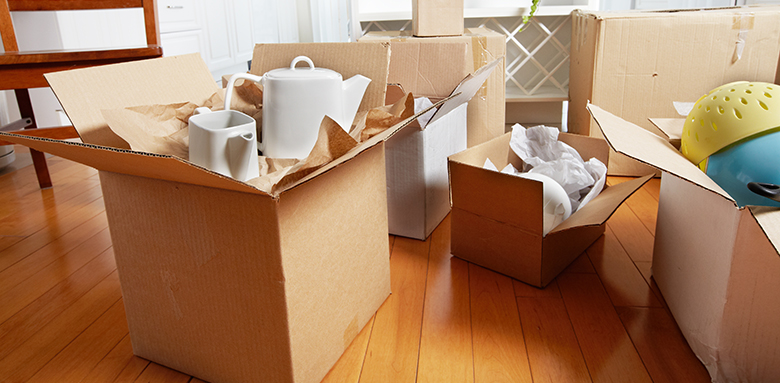As New York’s top moving company, we’ve helped hundreds of families plan, pack, and move their households. Sometimes these moves are right in the neighborhood. Other times, families are moving a longer distance – to a new neighborhood in New York, out of the city entirely, or even to a new state or country. Every family has a budget, and it’s important to keep moving costs down. With that in mind, here are five items you should never pay to move:
 #5: Clothes that don’t fit, you don’t wear, or won’t need:
#5: Clothes that don’t fit, you don’t wear, or won’t need:
Streamline your move by purging your wardrobe of items that aren’t your size, you haven’t worn in over a year, or won’t need in your new address. For example, a collection of heavy sweaters and warm scarves probably won’t see a lot of use in sunny California. Donate or sell these items!
#4: Canned food & pantry goods:
Most New Yorkers don’t keep enough food on hand to justify the time, energy, and expense of packing and moving it. No matter where you’re moving, the odds are pretty good you’ll be able to buy canned tuna fish and green beans there! Give what you have to your local food shelf so they can distribute it to people in need.
 #3: Cleaning supplies:
#3: Cleaning supplies:
Household cleaning supply packaging generally doesn’t stand up well to the rigors of a long distance or local move. This means bottles leak, break, and create a mess – which is the direct opposite impact of what these products are meant to do. Discovering a bottle of bleach has leaked all over the moving truck is absolutely no fun. Donate or toss your cleaning supplies & restock at your new address.
#2: Old Magazines & Newspapers:
Think through whether you really need to bring twenty years’ worth of National Geographic or the Village Voice to your next address. If you’re downsizing for a senior move, this is a great way to save space. Serious researchers & archivists know how to save the gems in their periodical collections. Recycle or donate the rest.
#1: Paints, solvents, and volatile chemicals:
Regulations prohibit the Shleppers team from moving any hazardous or flammable chemicals. These items can’t be kept in storage either. Safe disposal best practices for paint, solvent, and volatile chemicals varies by the type of material: contact your waste disposal professional for guidance.


